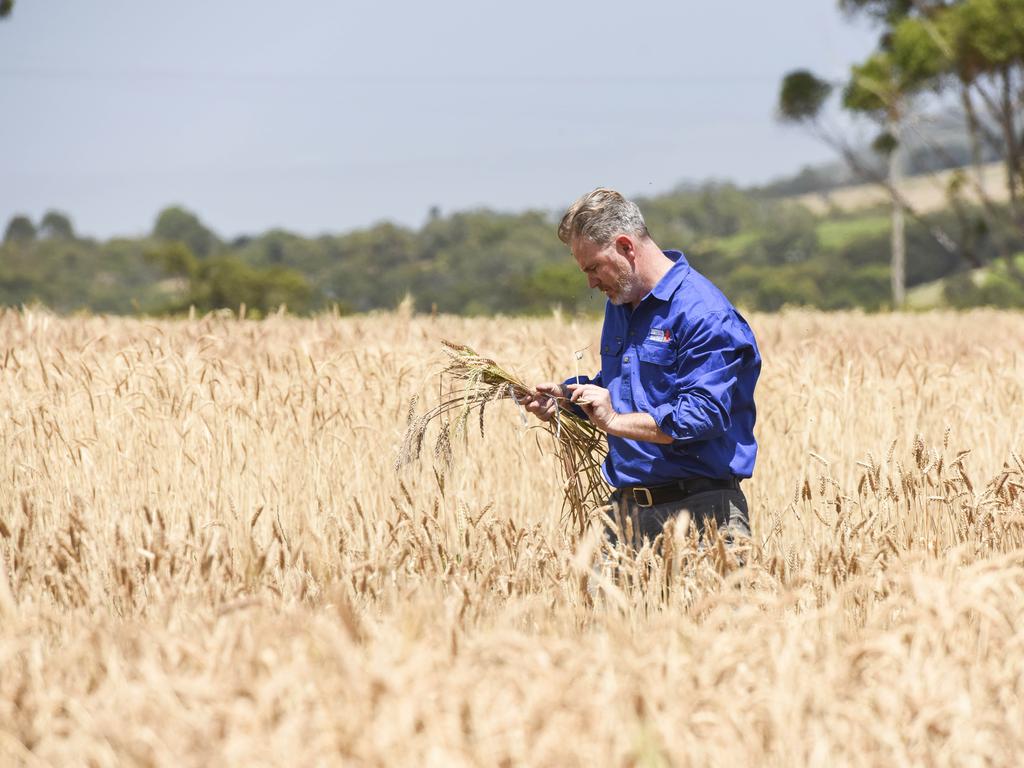Outlook darkens for Treasury Wine
Treasury Wine took another battering, with investors worried about the implications of Beijing’s anti-dumping investigation.

Treasury Wine Estates shares have taken another battering with investors worried about the long term implications of Beijing’s anti-dumping investigation into Australia’s $1.1bn wine export business to China.
The company, which was involved in crisis talks with federal Trade Minister Simon Birmingham, saw another $650mn wiped off its market capitalisation on Wednesday, taking the total market cap loss to more than $1.8bn since the inquiry was announced on Tuesday morning.
Treasury Wine shares, which closed at a recent high of $12.84 on Friday, after full year results which highlighted the importance of the Chinese market for the company, fell 90c on Wednesday or 8.5 per cent to close at $9.68.
The share price falls come as Mr Birmingham held talks with the wine industry including industry body Australian Grape and Wine, and other large winemakers including Pernod Ricard, Yalumba and Accolade.
While the government is insisting that Australian wine is not being dumped in China, analysts have marked down Treasury Wine on concerns that the outlook for its biggest market could be clouded for the next 18 months.
The anti-dumping inquiry, which had been feared by the wine industry following comments in April by China’s Ambassador to Australia, Cheng Jingye, came as a surprise to many investors.
Citi warned clients that “darker clouds loom over China”, saying in a note that the anti-dumping investigation posed “a risk to Treasury’s perceived growth outlook” of up to 18 per cent.
It said the initial share price fall indicated that there was a 30 per cent chance of “the worst case eventuating”.
The Citi note warns that the increase in sales of Australian wines to China in recent years was largely a result of an increase in market share rather than a growth in wine consumption in the country, which it said was “a less sustainable source of continued growth.”
While Treasury Wine does not break out its earnings from China, Citi estimates that it contributes 7 per cent of its total sales by volume and 35 per cent of its earnings before interest and tax.
It also warned that its sales in China could be impacted if importers took a more cautious approach to Australian wine pending the outcome of the investigation.
“The anti-dumping issue may not amount to anything, but the challenge for the company is a lower PE may be applied until this risk is cleared, which is more than 12 months away,” Citi said.
Macquarie downgraded its outlook for Treasury Wine shares from outperform to neutral on the back of the announcement, citing “geopolitical risk”.
“We see Treasury Wine as a pawn in a larger game,” it said.
“Its key Asian division, which makes up about 40 per cent of group earnings … may be an unwitting casualty as tension escalates. China is Treasury Wine’s key export region. It has driven revenue growth and margins.
“A disruption in this market would be very destructive for Treasury Wine.”
Macquarie noted that interim tariffs on Australian wine could be imposed as early as 60 days from the start of the inquiry.
While Treasury Wine has told the market it is not expecting any suspension of imports into China, Macquarie warned that “the situation is fraught and unpredictable” due to the high level of political tension between Australia and China.
The Prime Minister Scott Morrison again rejected suggestions that Australian wine was being dumped in China.
“We totally don’t accept any suggestion that there’s been any dumping of Australian wine in China,” he said.
“We don’t believe there’s any evidence to support that.”
But he warned that the inquiry process could take 18 months.
“It’s a process we will work through,” he said.
He said the wine industry had “every right to be confident that there’s absolutely no basis to the claims” being made against it.
But he also warned the industry “you can’t put all your eggs in one basket. I applaud the Australian wine industry for the diversification that they’ve put in place.”








To join the conversation, please log in. Don't have an account? Register
Join the conversation, you are commenting as Logout